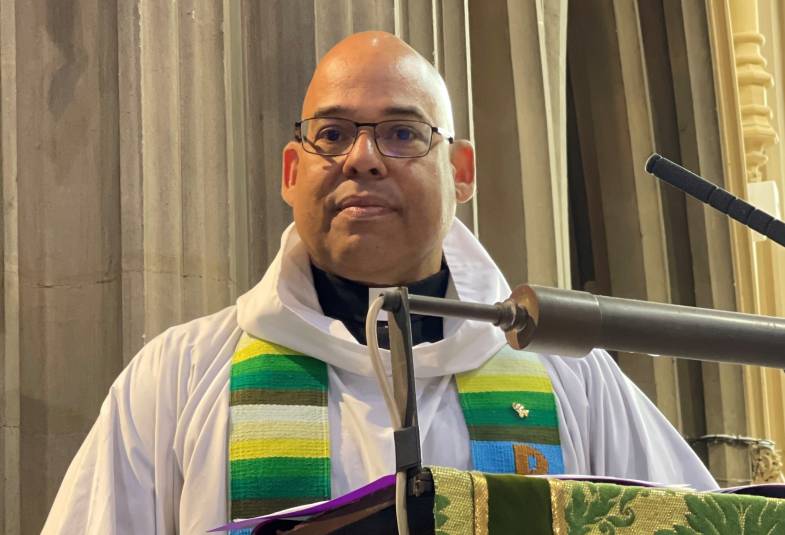Church of England appoints first racial justice director following slavery apologies
This follows apologies from church leaders for its role in the trafficking and enslavement of African people

The Church of England has appointed its first racial equality director following apologies for its role in the trafficking and enslavement of African people.
Anglican priest Guy Hewitt, a former Barbados high commissioner to the UK, will take up the post in November and lead the church’s Racial Justice Unit.
The group has been set up following the recommendations of the Archbishop of Canterbury’s anti-racism taskforce report From Lament to Action, published in April last year.
Commenting on the appointment, Reverend Hewitt said: “I am humbled by the confidence of those who have chosen me to serve as the inaugural director and look forward to what I plan to be a participatory and inclusive process of restoration.
“The indelible link between our faith and public life is reinforced at Confirmation with our vow to defend the weak, and to seek peace and justice.”
Located within the Archbishops’ council and reporting to the secretary general, Reverend Hewitt will work alongside the Archbishops’ Commission for Racial Justice to ensure the taskforce recommendations and the work of the commission are implemented.
London-born, of Barbadian and Indian parentage, Reverend Hewitt has a background in social policy and development, working internationally on issues of marginalisation, economic enfranchisement, racial justice, youth empowerment, and gender equality.
He is an honorary senior research fellow with the Institute of Commonwealth Studies at the University of London and an advisory board member of the Windrush Scandal Research Project based there.
The reverend was ordained in Barbados in 2005, having trained with the Diocese of Southwark.
A staunch critic of the UK government over its handling of the Windrush scandal, Reverend Hewitt said in 2018: “The UK is still not at ease with race. Colonial history is still not taught here. The modern global Britain, with a multicultural society, is still an aspiration rather than a reality.”
He most recently served as priest-in-charge at St James in the Hill Church in Hollywood, Florida, before taking up the post of associate vicar at All Saints Church in Fulham, southwest London.
William Nye, secretary general of the Archbishops’ council, said: “I am delighted that we have been able to appoint the Revd Guy Hewitt to be the first racial justice director for the Church of England.
“This is a vital post, helping the Church address the challenges of racial justice, and helping the Church speak into this agenda nationally.”
Lord Boateng, who heads the Archbishops’ Commission on Racial Justice, described the role as “long-awaited”, adding that the Racial Justice Unit “must now be adequately staffed and resourced to deliver on the change promised”.
The Very Reverend Rogers Govender, chair of the committee for minority ethnic Anglican concerns, said: “We look forward to working with Guy Hewitt and the RJC as we seek racial justice and the full inclusion of UKME brothers and sisters in the Church of England.”
The appointment follows an apology by the Archbishop of CanterburyJustin Welby after research found the church’s investment fund had links to the slave trade, calling it a “source of shame”.
The archbishop announced the three-year probe had found the church’s investment fund had contributed “significant amounts” to the South Sea Company which traded in enslaved people.
In the wake of widespread Black Lives Matter protests following George Floyd’s murder in the US in 2020, the Church of England said it is ashamed of its role in slavery. However, the issue of reparations for former British colonies and relatives of enslaved African people remains ongoing.
Subscribe to Independent Premium to bookmark this article
Want to bookmark your favourite articles and stories to read or reference later? Start your Independent Premium subscription today.

Join our commenting forum
Join thought-provoking conversations, follow other Independent readers and see their replies